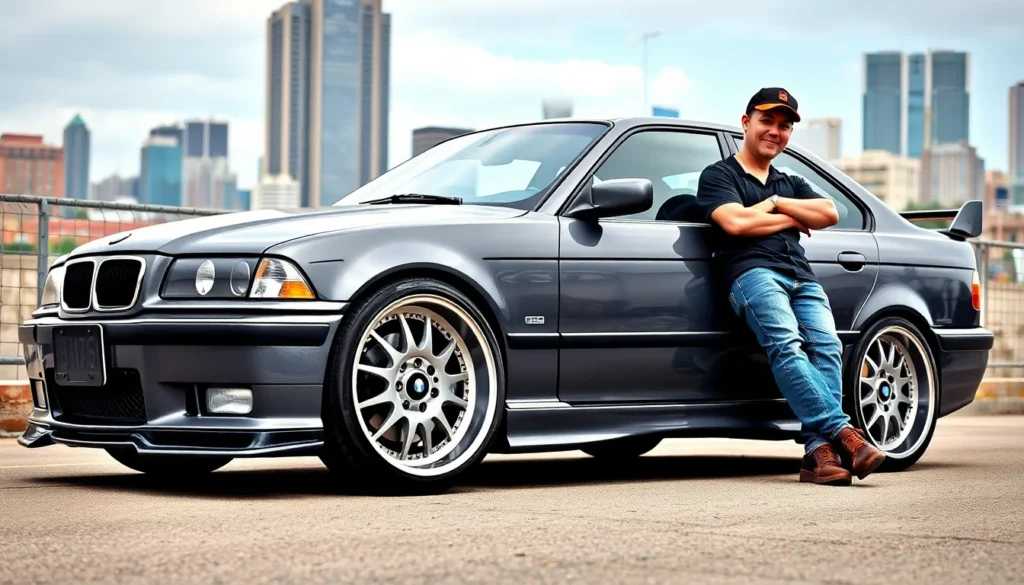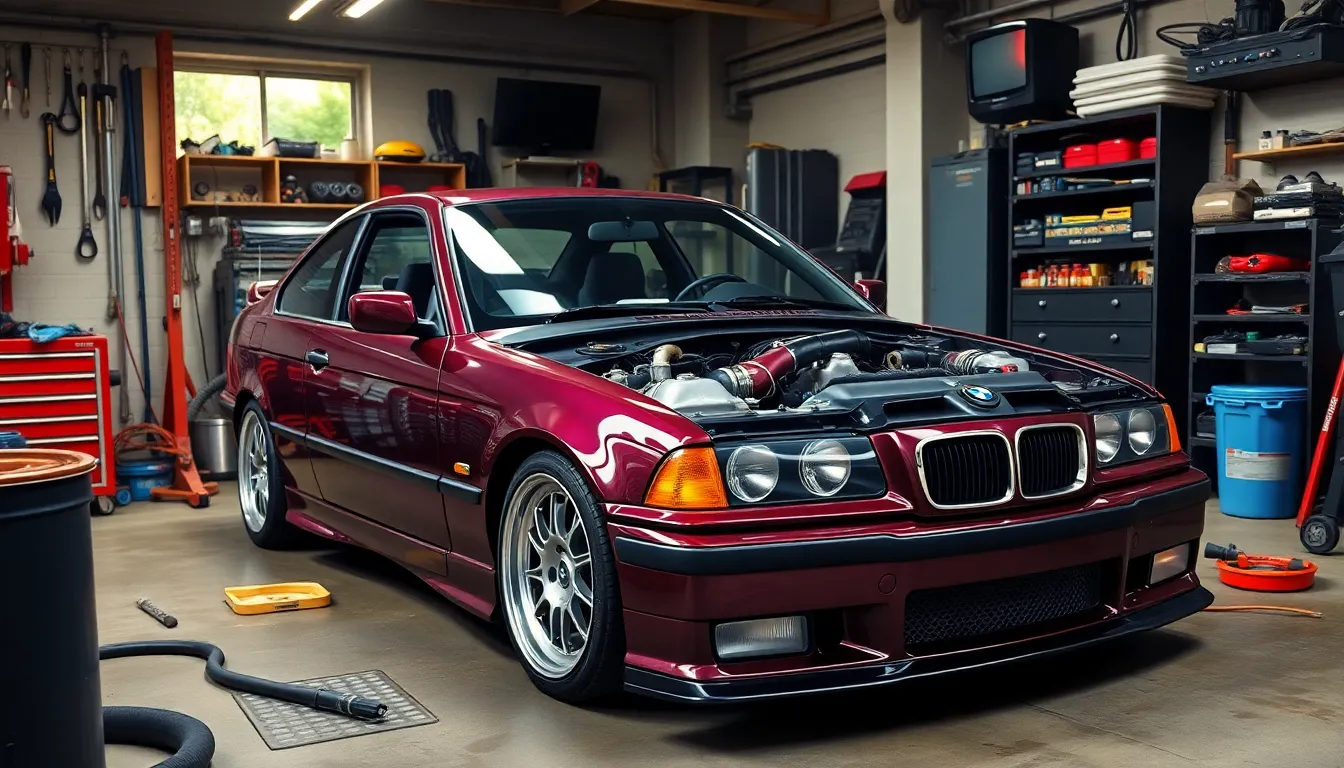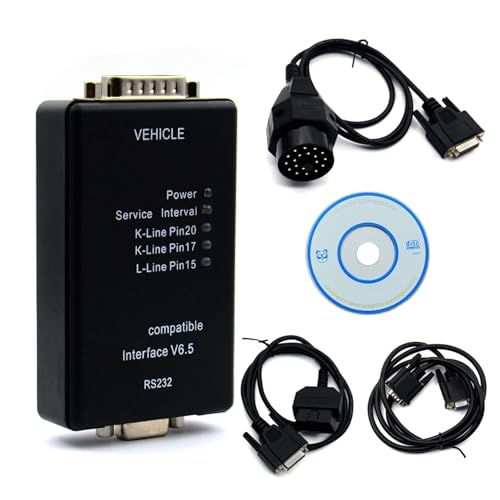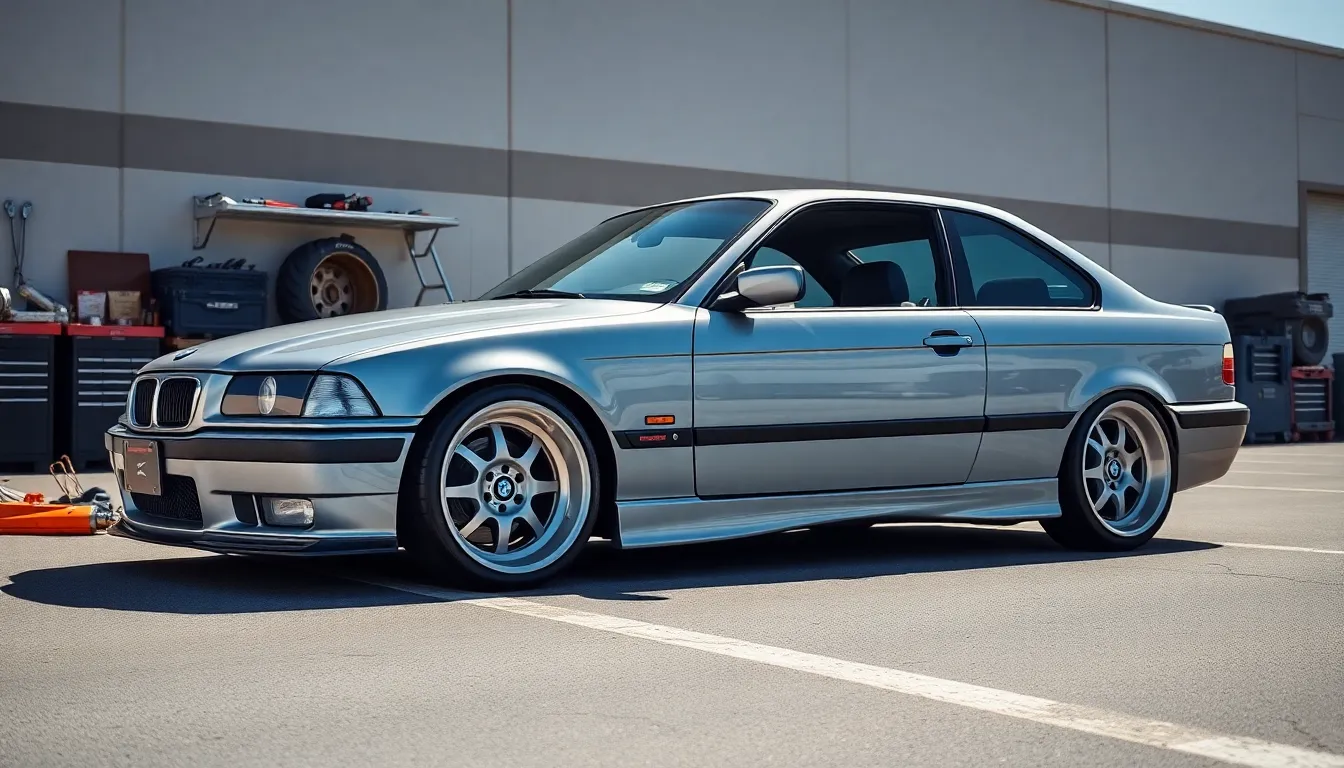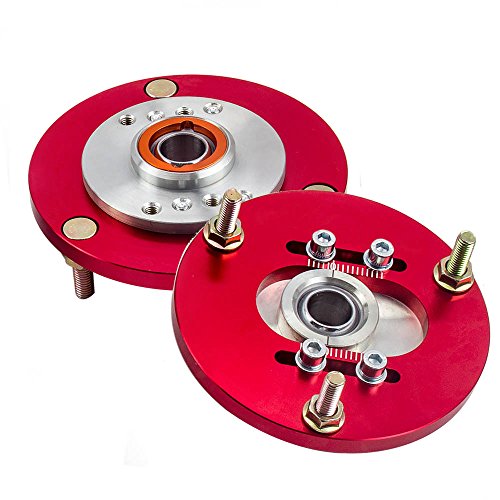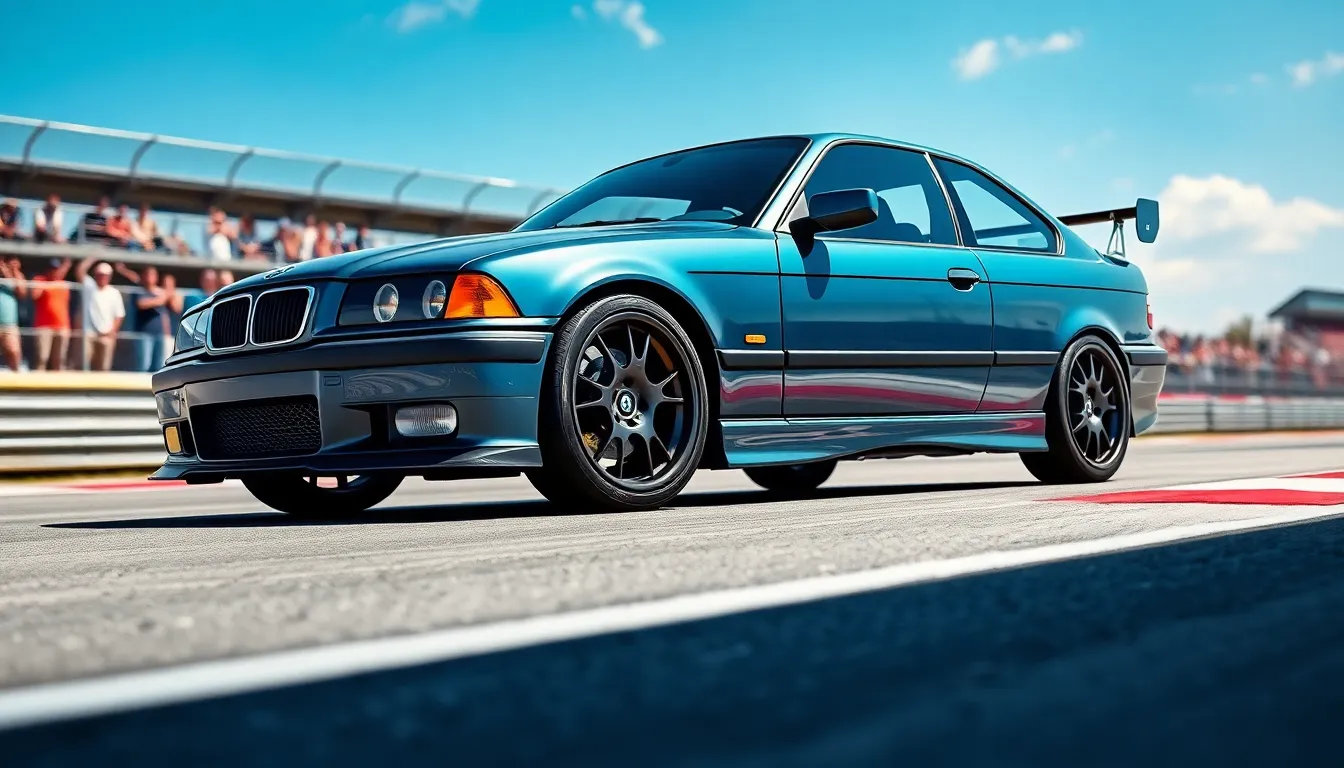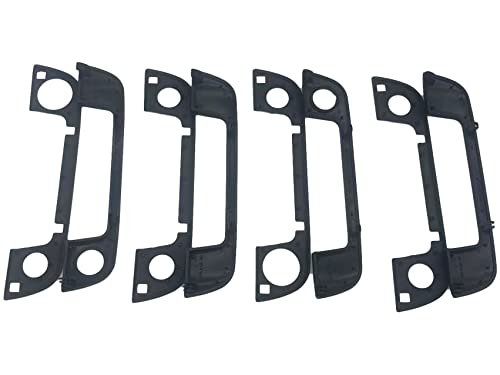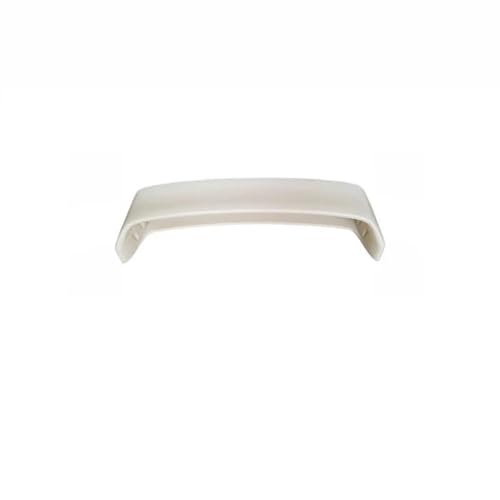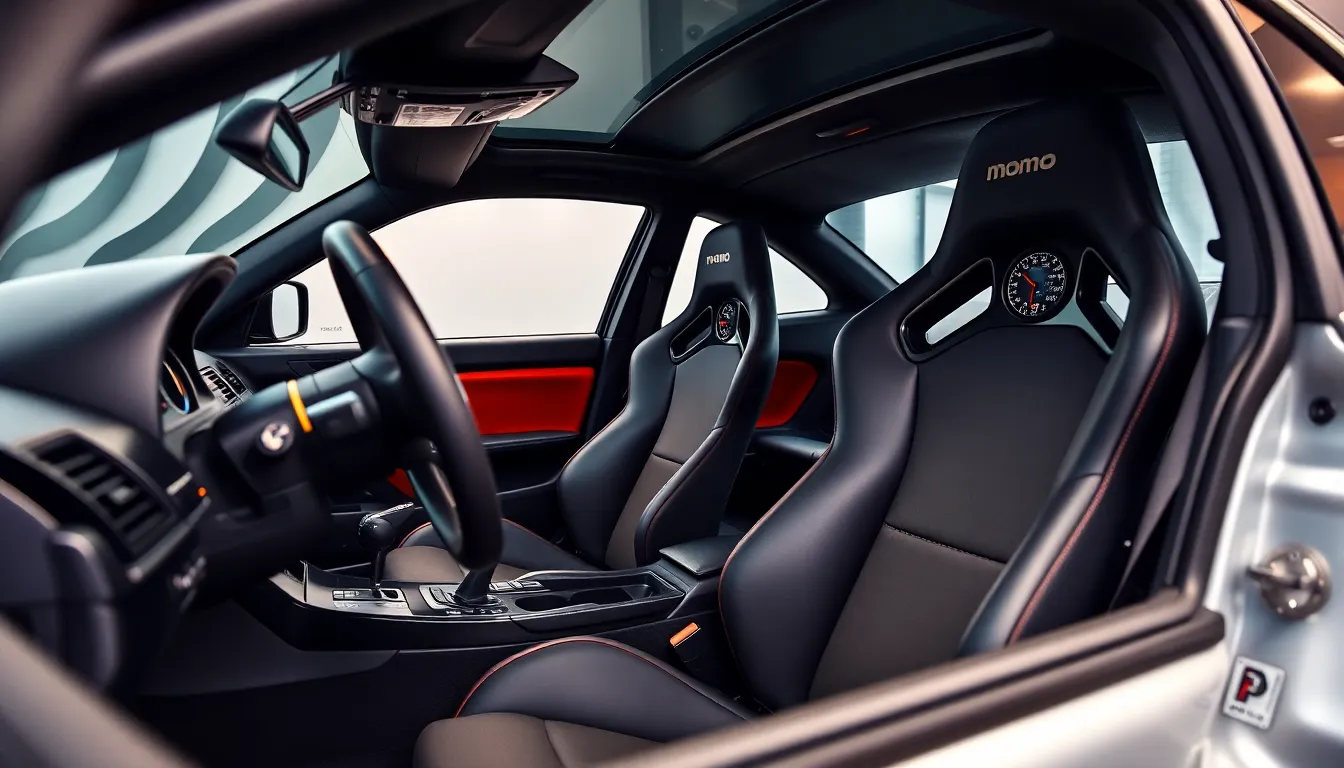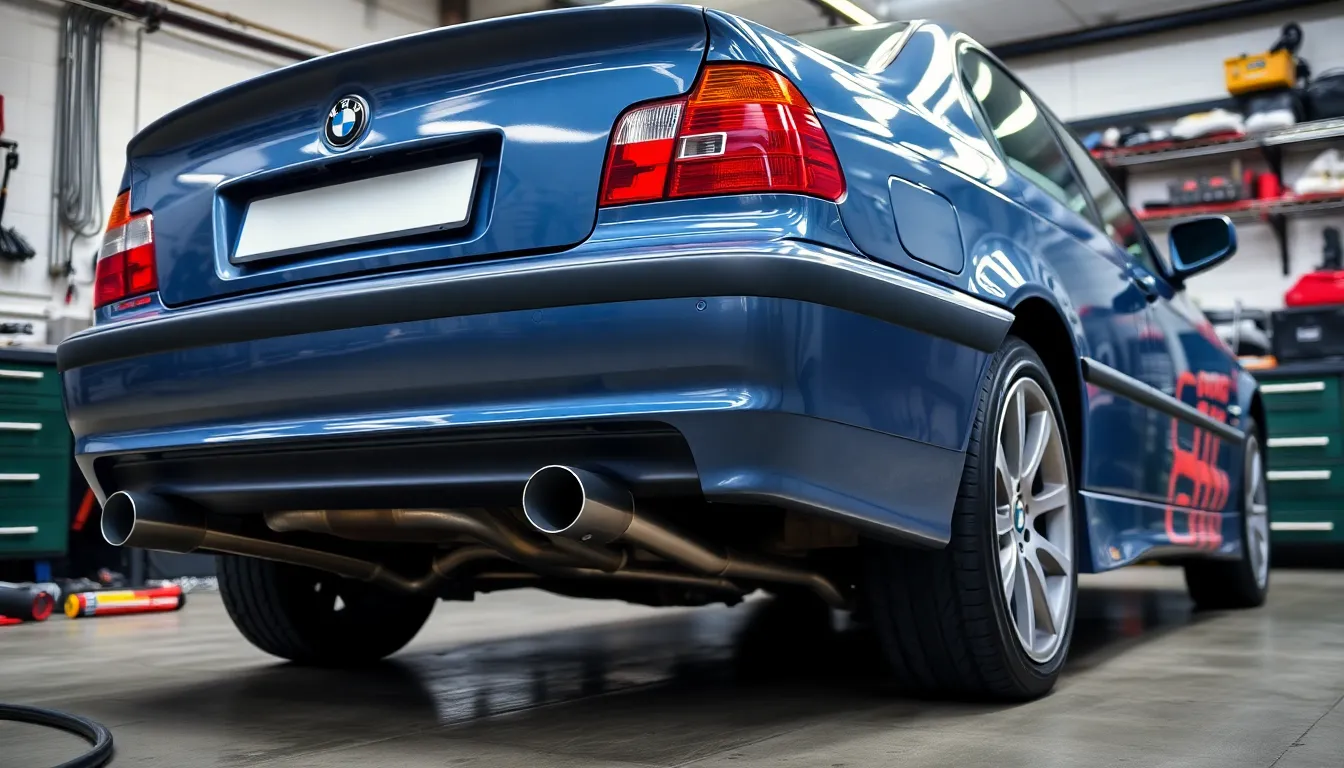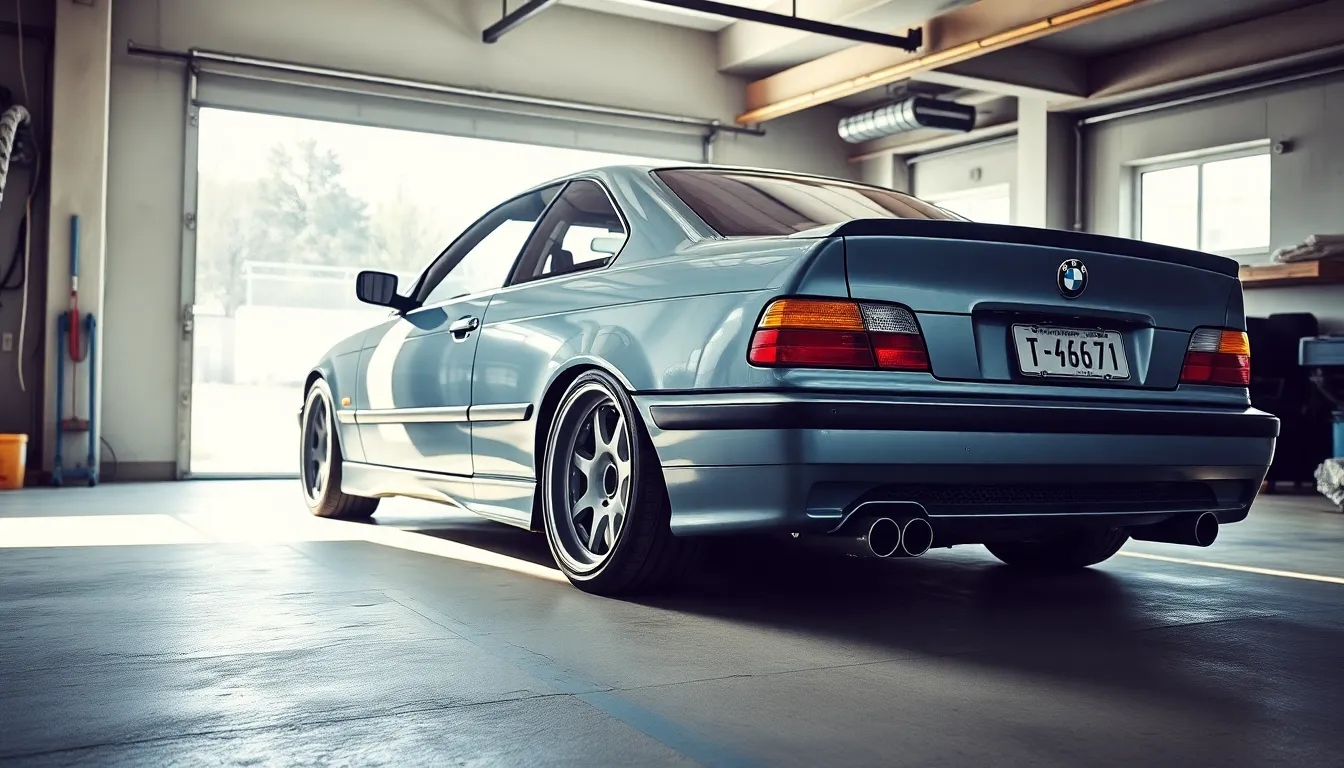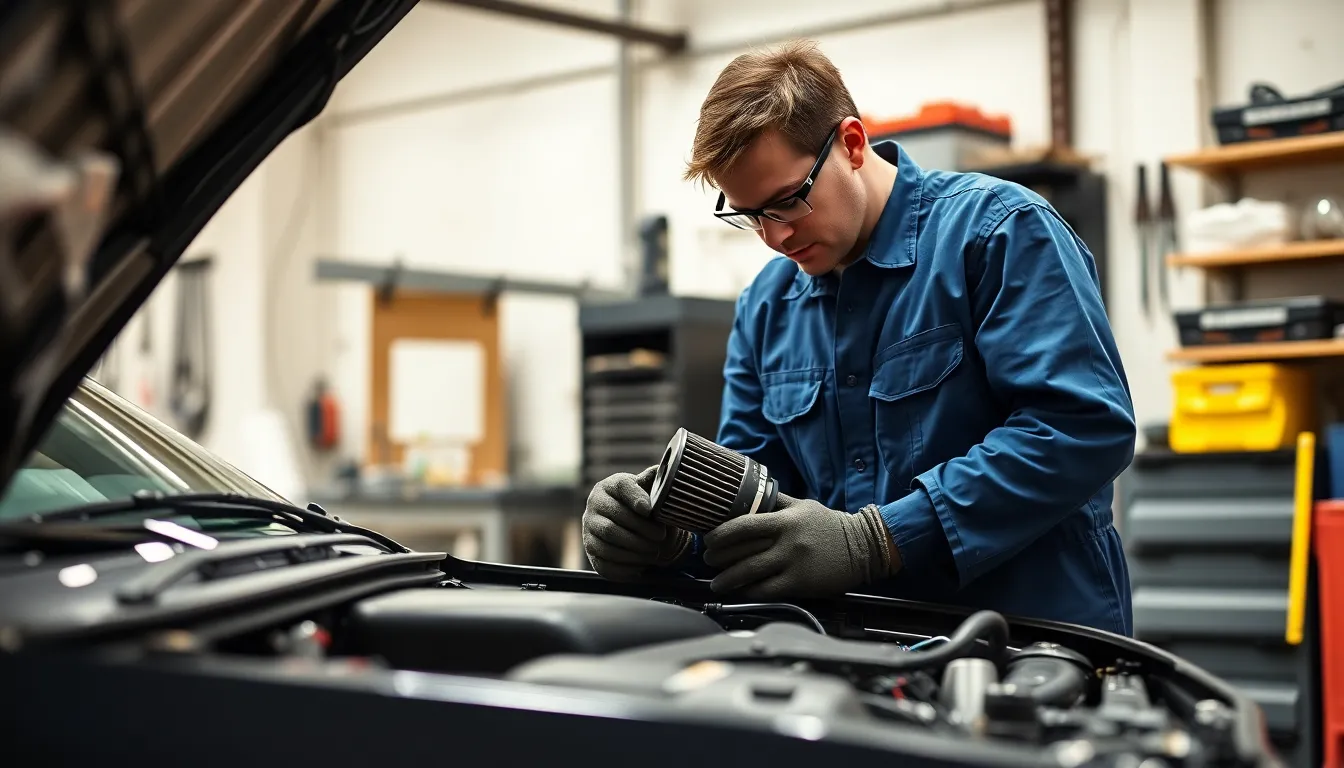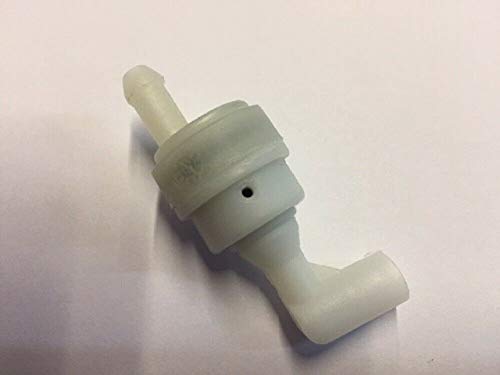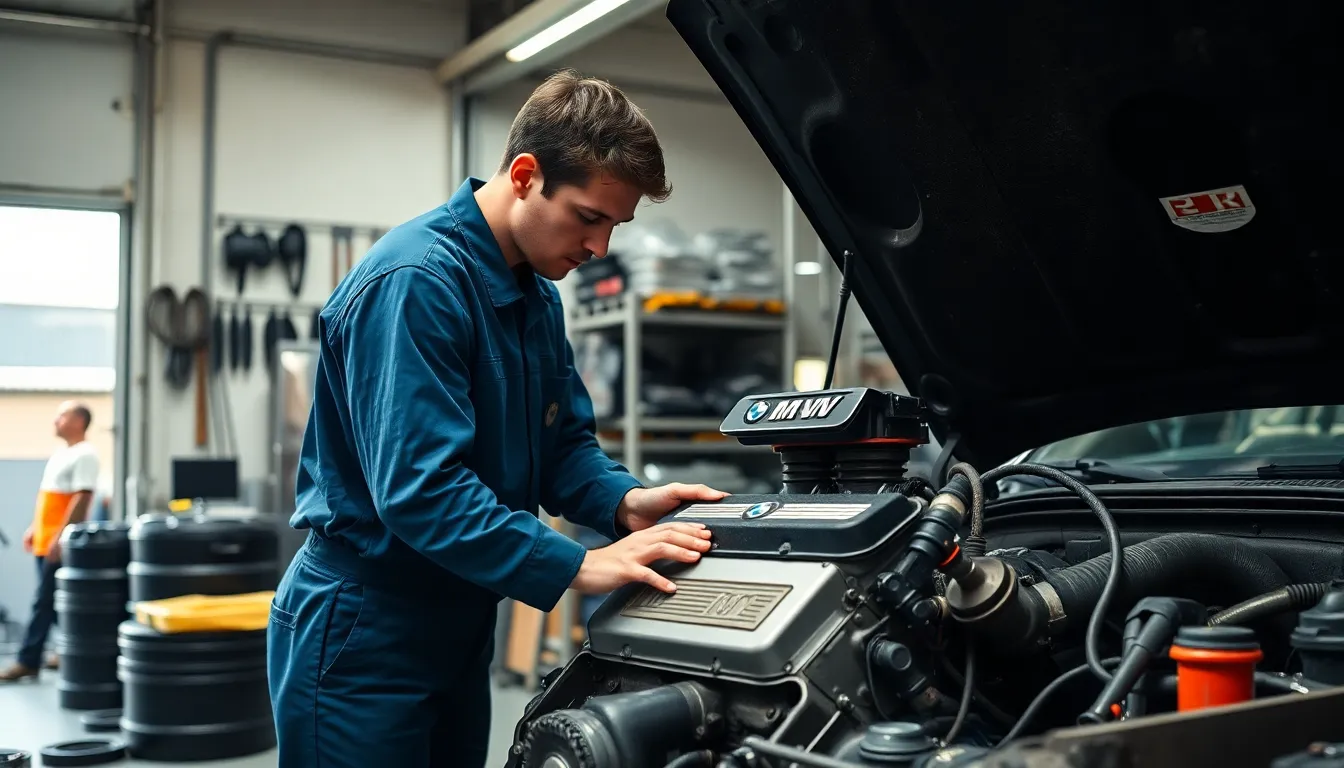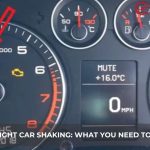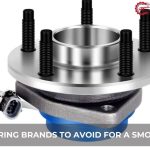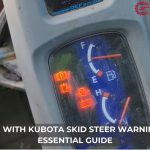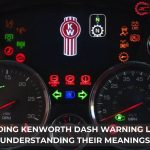The BMW E36 remains one of the most beloved platforms in the tuning community and for good reason. With its perfect balance of affordability reliability and endless modification potential this iconic chassis has captured the hearts of enthusiasts worldwide. Whether you’re looking to build a track monster or a clean daily driver the E36 offers something special that newer BMWs simply can’t match.
We’ve spent countless hours working with these legendary machines and we can tell you firsthand that the E36’s tuning potential is virtually limitless. From simple bolt-on modifications that deliver immediate results to comprehensive engine swaps that transform the entire character of the car this platform welcomes creativity like no other.
What makes E36 tuning so appealing isn’t just the performance gains you can achieve. It’s the incredible community support extensive aftermarket parts availability and the satisfaction of breathing new life into these timeless Bavarian classics. Let’s jump into everything you need to know about unlocking your E36’s true potential.
Understanding the BMW E36 Platform
The BMW E36 represents the third generation of the 3 Series, produced from 1990 to 2000, serving as the foundation for countless tuning projects worldwide. We’ve witnessed this platform evolve from a standard compact executive car into one of the most versatile tuning bases available today.
Built on BMW’s refined engineering principles, the E36 features a unibody construction with independent suspension at all four corners. MacPherson struts handle front suspension duties while a multi-link setup manages the rear, creating an ideal balance between daily drivability and track performance potential.
Engine Options and Characteristics
BMW offered multiple engine configurations throughout the E36’s production run, each presenting unique tuning opportunities:
| Engine Code | Displacement | Power Output | Tuning Potential |
|---|---|---|---|
| M40B16 | 1.6L I4 | 100-102 hp | Limited |
| M43B18 | 1.8L I4 | 115-138 hp | Moderate |
| M50B20 | 2.0L I6 | 150 hp | High |
| M52B28 | 2.8L I6 | 193 hp | Excellent |
| S50B30 | 3.0L I6 | 286 hp | Exceptional |
Our experience shows that the inline-six engines, particularly the M50 and M52 variants, respond exceptionally well to modifications. These naturally aspirated powerplants feature DOHC designs with variable valve timing on later models, providing excellent headroom for performance enhancement.
Chassis Dynamics and Weight Distribution
The E36 achieves near-perfect 50/50 weight distribution through strategic component placement and aluminum suspension components. This balance creates predictable handling characteristics that remain consistent across various driving conditions and modification levels.
Structural rigidity comes from BMW’s integrated body construction, featuring reinforced A and B pillars. We’ve found this design provides sufficient stiffness for most applications while remaining accessible for custom modifications like roll cage installation.
Production Variants and Body Styles
BMW produced the E36 in multiple configurations, each offering distinct advantages for tuning projects:
- Sedan (4-door): Most common variant with excellent parts availability
- Coupe (2-door): Lighter weight with improved structural rigidity
- Convertible: Heaviest variant requiring additional chassis reinforcement
- Compact: Budget-friendly option with rear beam axle
- Touring: Wagon variant popular for sleeper builds
Coupe variants typically command higher prices in today’s market due to their popularity among enthusiasts and superior chassis dynamics compared to sedan counterparts.
Electronic Systems and Management
The E36 employs BMW’s OBD-I diagnostic system on early models, transitioning to OBD-II compliance by 1996. Engine management varies between Bosch Motronic systems depending on the exact engine and production year.
Digital Motor Electronics (DME) controls fuel injection and ignition timing across all variants. We’ve discovered these systems respond well to aftermarket tuning answers while maintaining reliable operation under various conditions.
Anti-lock braking systems (ABS) come standard on most variants, integrated with BMW’s Automatic Stability Control (ASC) on later models. These safety features remain functional with most performance modifications when properly configured.
Engine Tuning Options
Engine tuning transforms the E36’s performance characteristics while maintaining the platform’s renowned reliability. We’ve explored countless combinations of modifications that deliver substantial power gains across different budget levels.
Naturally Aspirated Modifications
Naturally aspirated tuning maximizes airflow efficiency and internal engine optimization without forced induction. Cold air intake systems replace restrictive factory airboxes with high-flow alternatives like Turner Motorsport or aFe Power units that increase airflow by 15-20%. Performance headers eliminate exhaust restrictions through designs from Supersprint or Ireland Engineering that reduce backpressure and improve scavenging effects.
Camshaft upgrades dramatically alter power delivery characteristics across the RPM range. Schrick 272-degree cams increase peak power output by 12-15 horsepower on M50 engines while extending the powerband to 7000 RPM. Aggressive profiles like Turner Motorsport’s Stage 2 cams require valve spring upgrades and ECU recalibration for optimal performance.
Compression ratio modifications through head work or piston swaps unlock important power potential. CNC ported cylinder heads from Dinan or Turner increase airflow velocity by 25-30% compared to stock castings. High compression pistons elevating ratios to 10.5:1 or 11:1 require premium fuel but deliver noticeable torque improvements throughout the mid-range.
Throttle body upgrades eliminate intake restrictions on older M50 engines equipped with smaller 60mm units. Installing M52 70mm throttle bodies or aftermarket 74mm units from Turner Motorsport improves throttle response and peak airflow capacity.
Forced Induction Upgrades
Forced induction systems multiply the E36’s power output through compressed air delivery to the combustion chambers. Turbocharger kits from manufacturers like Vortech or Active Autowerke generate 300-400 horsepower on stock internal M52 engines with proper supporting modifications.
Supercharger systems provide linear power delivery without turbo lag characteristics. Vortech V-1 supercharger kits produce consistent boost pressure throughout the RPM range while maintaining excellent drivability for daily use scenarios. These systems typically generate 275-325 horsepower depending on boost levels and supporting modifications.
Supporting modifications become critical for forced induction reliability and performance. Upgraded fuel systems including 440cc injectors and high-pressure fuel pumps ensure adequate fuel delivery under boost conditions. Intercooler systems from Dinan or Turner Motorsport maintain intake air temperatures below 120°F for consistent power output.
Engine internals require reinforcement for high boost applications exceeding 10 PSI. Forged pistons from JE or CP Pistons handle increased cylinder pressures while maintaining proper compression ratios. Connecting rod upgrades and main bearing reinforcements become necessary for applications targeting 400+ horsepower.
Management systems coordinate forced induction components through precise fuel and ignition timing control. Standalone ECU systems like Megasquirt or AEM EMS provide the flexibility required for custom turbo or supercharger installations.
ECU Tuning and Management Systems
ECU tuning optimizes fuel delivery and ignition timing for maximum performance from engine modifications. Factory Siemens or Bosch engine management systems respond well to chip tuning through companies like Dinan Turner Motorsport or Shark Injector that offer plug-and-play answers.
Chip modifications alter factory fuel and timing maps to accommodate intake exhaust and camshaft upgrades. Stage 1 chips typically add 8-12 horsepower on lightly modified engines while improving throttle response and eliminating factory restrictions. Advanced tunes incorporate custom maps for exact modification combinations including headers cold air intakes and performance camshafts.
Standalone engine management systems replace factory ECUs for maximum tuning flexibility. MegaSquirt systems cost $800-1200 and provide complete control over fuel ignition and auxiliary functions like nitrous or boost control. AEM Infinity ECUs offer advanced features including traction control and data logging for serious track applications.
Wideband oxygen sensor systems enable precise air-fuel ratio monitoring during tuning sessions. AEM UEGO gauges provide real-time feedback for tuners to optimize fuel maps across different RPM and load conditions. These systems prove essential for forced induction applications where mixture control directly affects engine longevity.
Dyno tuning validates ECU modifications through controlled power measurement and optimization. Professional tuning sessions typically cost $400-800 but ensure maximum performance and reliability from engine modifications. Custom tunes account for elevation climate and fuel quality variations that affect engine performance characteristics.
Suspension and Handling Upgrades
Maximizing your E36’s handling potential starts with upgrading the suspension components that connect the chassis to the road. These modifications transform the platform’s already impressive dynamics into a precision driving instrument.
Coilover Systems
Coilover systems represent the most comprehensive suspension upgrade for E36 tuning enthusiasts seeking adjustable performance. We recommend brands like KW, Bilstein PSS, and BC Racing for their proven track record on the E36 platform.
Entry level coilovers from BC Racing start at $800 and provide height adjustment with basic damping control. Mid tier options like Bilstein B14 PSS systems cost approximately $1,200 and offer both compression and rebound adjustment with superior build quality. High end KW Variant 3 coilovers reach $2,500 but deliver motorsport grade adjustability with independently adjustable compression and rebound damping.
Professional installation requires specialized spring compressors and alignment equipment. Corner weighting becomes critical when lowering the E36 beyond 1.5 inches to maintain proper suspension geometry. We’ve found that moderate drops of 1 to 1.5 inches provide the best balance between aesthetics and performance while preserving ride quality.
Damping settings vary based on driving conditions and tire compounds. Track focused setups typically run stiffer compression settings with faster rebound to control body roll during aggressive cornering. Street applications benefit from softer settings that absorb road imperfections while maintaining responsive handling characteristics.
| Component | Entry Level | Mid Tier | High End |
|---|---|---|---|
| BC Racing BR Series | $800 | Height adjustable | Basic damping |
| Bilstein B14 PSS | $1,200 | Height + damping | German engineering |
| KW Variant 3 | $2,500 | Full adjustability | Motorsport grade |
Sway Bars and Strut Tower Braces
Anti roll bars dramatically reduce body roll during cornering by connecting left and right suspension components. We install larger diameter front sway bars ranging from 25mm to 28mm compared to the stock 22mm bar found on most E36 models.
Front sway bar upgrades from Turner Motorsport cost $180 for their 25mm solid bar while Dinan’s 26mm hollow bar runs $240 with reduced weight. Rear sway bars increase from the factory 16mm to aftermarket options between 19mm and 22mm depending on the desired handling balance.
Adjustable sway bar end links allow fine tuning of the anti roll effect. Shorter end links increase bar stiffness while longer links reduce the effect for different driving scenarios. We use adjustable links from Ground Control at $120 per pair to optimize the suspension setup.
Strut tower braces connect the shock towers to reduce chassis flex during hard cornering. Turner Motorsport’s aluminum front strut tower brace costs $160 and provides noticeable improvement in steering precision. Rear strut tower braces add $140 but contribute less to overall rigidity improvement.
Chassis reinforcement bars underneath the vehicle address the E36’s tendency for rear subframe movement. We install reinforcement bars from Rogue Engineering at $280 to eliminate subframe deflection that compromises rear suspension geometry under load.
Performance bushings replace the soft rubber components with polyurethane or spherical bearings. Control arm bushings from Turner Motorsport cost $45 per arm and reduce suspension compliance while maintaining street drivability. Spherical bearings provide ultimate precision at $180 per set but create noise and vibration unsuitable for daily driving.
Exterior Modifications
Exterior modifications transform the E36’s classic lines into a personalized statement while improving aerodynamic performance. We’ve witnessed countless E36 builds where thoughtful exterior upgrades create dramatic visual impact alongside functional improvements.
Body Kits and Aerodynamics
Body kits fundamentally alter the E36’s appearance while providing measurable aerodynamic benefits. We recommend starting with front splitters and rear spoilers before committing to complete body kit installations.
Popular Body Kit Options:
| Brand | Style | Price Range | Key Features |
|---|---|---|---|
| AC Schnitzer | Type II | $2,800-$4,200 | OEM+ styling, excellent fitment |
| Rieger | RS4 Look | $1,800-$2,600 | Aggressive appearance, fiberglass construction |
| Vertex | Ridge | $3,200-$4,800 | Japanese drift aesthetic, wide body options |
| Pandem | Rocket Bunny | $4,500-$6,800 | Extreme widebody, riveted overfenders |
Front splitters reduce lift at highway speeds while creating aggressive visual stance. We’ve measured up to 15% reduction in front-end lift with properly designed splitters like the Turner Motorsport carbon fiber unit ($380) or the BMW Performance front spoiler ($520).
Side skirts connect front and rear aesthetics while managing airflow along the vehicle’s flanks. Quality fiberglass options from companies like Rieger ($420 per pair) offer excellent value compared to carbon fiber alternatives ($890 per pair) that provide weight savings of approximately 8 pounds.
Rear spoilers and diffusers complete the aerodynamic package by managing rear airflow separation. We prefer adjustable wings like the APR GTC-200 ($1,280) for track-focused builds or subtle OEM-style spoilers like the BMW M3 CSL replica ($340) for street applications.
Ducktail spoilers provide middle-ground aesthetics between stock and aggressive wing setups. The Dinan carbon fiber ducktail ($680) adds 12 pounds of rear downforce at 80 mph while maintaining daily drivability.
Wide body kits require extensive modifications but create dramatic visual transformation. Pandem’s Rocket Bunny kit adds 2.5 inches of width per side and accommodates wheel sizes up to 18×11 inches in the rear.
Wheel and Tire Combinations
Wheel and tire combinations dramatically influence both performance and aesthetics on the E36 platform. We’ve tested many setups and identified optimal configurations for different driving applications.
Recommended Wheel Specifications:
| Application | Front Size | Rear Size | Offset | Tire Width |
|---|---|---|---|---|
| Daily Driving | 17×8 | 17×8.5 | ET35-40 | 225/245 |
| Track Use | 18×9 | 18×10 | ET30-35 | 245/265 |
| Show Build | 18×9.5 | 18×10.5 | ET22-28 | 255/275 |
| Drift Setup | 17×9 | 17×10 | ET25-30 | 235/255 |
Lightweight forged wheels provide the greatest performance benefits through reduced unsprung weight. We measure 4-6 pound savings per corner with wheels like the Apex ARC-8 ($340 per wheel) compared to OEM alternatives.
Fifteen52 Tarmac wheels ($280 per wheel) offer excellent value in cast construction while maintaining motorsport-inspired aesthetics. These wheels clear big brake kits and provide proper spoke clearance for suspension components.
BBS wheels remain the gold standard for E36 applications. The LM series ($480-620 per wheel) provides authentic motorsport heritage with proven strength ratings exceeding 2,500 pounds per wheel.
Tire selection depends on intended use and performance priorities. We recommend Michelin Pilot Sport 4S for street performance, Toyo R888R for track days, and Federal 595RS-RR for budget-conscious track applications.
Stretched tire setups create aggressive aesthetics but compromise performance. Running 215-width tires on 9-inch wheels reduces contact patch by approximately 18% compared to properly sized combinations.
Fender modifications often become necessary with aggressive wheel fitments. Rolling fenders costs $80-120 per corner at professional shops while fender pulling requires $150-200 per corner for important clearance increases.
Spacers provide fitment adjustments without purchasing new wheels. We use only hub-centric spacers with extended bolts, typically 10-15mm front and 20-25mm rear for flush fitment on stock fenders.
Interior and Comfort Enhancements
Interior upgrades transform the E36’s cabin into a more captivating and comfortable environment for both daily driving and track sessions. We’ve found that replacing the factory seats significantly improves driving posture and lateral support during spirited driving.
Racing seats provide the most substantial upgrade for performance enthusiasts. Brands like Recaro, Sparco, and OMP offer models specifically designed for the E36’s interior dimensions. The Recaro Speed seats mount directly to factory rails while delivering superior thigh and shoulder support. Track focused drivers benefit from fixed back shells like the Sparco Pro 2000 which reduce weight by 15 pounds per seat compared to factory units.
Steering wheel replacements enhance the driving connection through improved grip and reduced diameter. MOMO, Sparco, and OMP produce wheels ranging from 320mm to 350mm diameter with various grip materials. Deep dish options like the MOMO Mod 07 create more leg room for taller drivers while maintaining proper hand positioning. Hub adapters from companies like NRG ensure proper airbag delete functionality when installing aftermarket wheels.
Shift knobs and short shifters reduce throw distance and improve shift precision. The UUC EVO3 short shifter reduces throw by 40% while maintaining factory smoothness. Weighted shift knobs from brands like BMW Performance and Turner Motorsport improve shift feel through increased mass and ergonomic design.
| Component | Brand | Price Range | Key Benefit |
|---|---|---|---|
| Racing Seats | Recaro Speed | $800-1200 | Direct bolt-in fitment |
| Fixed Shell Seats | Sparco Pro 2000 | $400-600 | Weight reduction |
| Steering Wheels | MOMO Mod Series | $150-300 | Improved grip surface |
| Short Shifters | UUC EVO3 | $200-250 | 40% throw reduction |
| Shift Knobs | Turner Motorsport | $50-150 | Enhanced shift feel |
Gauge clusters and instrumentation provide essential monitoring capabilities for modified engines. Stack, AEM, and Defi produce 52mm gauges that fit perfectly in the E36’s dashboard vents. Boost pressure, air/fuel ratio, and oil temperature gauges become critical when running forced induction setups. Digital displays like the AEM X Series offer multiple parameters in a single unit.
Audio system upgrades enhance the driving experience without adding excessive weight. Component speakers from Focal, Alpine, and Pioneer fit factory locations while delivering significantly improved sound quality. The rear deck speakers benefit most from replacement as factory units typically fail after 25+ years. Sound dampening materials like Dynamat reduce road noise by 3-5 decibels when applied to door panels and floor pans.
Climate control modifications improve comfort during track events and daily use. Aftermarket air conditioning compressors from Sanden provide more reliable cooling in hot climates. Performance enthusiasts often remove AC systems entirely to save 25 pounds of rotating mass from the engine bay. Electric cooling fans replace mechanical units to free up horsepower while improving cooling efficiency.
Performance Exhaust Systems
Performance exhaust systems transform your E36’s power delivery and sound characteristics dramatically. We’ve tested many exhaust configurations across different E36 models and consistently found power gains ranging from 8 to 25 horsepower depending on the system design and engine combination.
Cat-Back Exhaust Systems
Cat-back systems provide the most straightforward upgrade path for E36 owners seeking improved performance. These systems replace everything from the catalytic converter to the rear bumper and typically deliver 8-12 horsepower gains on naturally aspirated engines.
Popular cat-back options include:
| Brand | Material | Power Gain | Price Range | Sound Level |
|---|---|---|---|---|
| Borla ATAK | 304 Stainless Steel | 10-12 HP | $600-800 | Aggressive |
| Magnaflow | 409 Stainless Steel | 8-10 HP | $400-600 | Moderate |
| Supersprint | T304 Stainless Steel | 12-15 HP | $800-1200 | Sport |
| Turner Motorsport | 304 Stainless Steel | 9-11 HP | $500-700 | Mild |
Header Upgrades
Headers maximize exhaust flow from the combustion chambers and create the foundation for important power increases. We recommend 4-2-1 header designs for naturally aspirated E36 engines as they optimize torque production across the RPM range.
Quality header options deliver substantial performance benefits:
- Supersprint 4-2-1 headers generate 15-20 horsepower gains on M50/M52 engines
- Turner Motorsport equal length headers provide consistent power delivery and improved throttle response
- Racing Dynamics tri-Y headers optimize mid-range torque production for street driving applications
High Flow Catalytic Converters
High flow catalytic converters reduce exhaust backpressure while maintaining emissions compliance in most states. These units flow 200-400 CFM compared to stock catalysts that typically flow 150-200 CFM.
Random Technology and Magnaflow produce high flow cats specifically designed for E36 applications. Installation typically requires professional welding unless you select bolt-on units designed for exact model years.
Complete Exhaust Manifold Systems
Turbo E36 builds require specialized exhaust manifolds to accommodate forced induction systems. Equal length manifolds minimize turbo lag and provide consistent exhaust gas temperatures across all cylinders.
Custom fabrication often produces the best results for boosted applications. We’ve achieved optimal performance using 1.75-inch primary tubes feeding into 3-inch collectors on turbocharged M50/M52 engines producing 300+ horsepower.
Sound Considerations and Resonator Options
Resonator selection significantly impacts cabin noise levels during highway cruising. Straight-through designs like Vibrant Ultra Quiet resonators reduce drone while maintaining performance characteristics.
Multiple resonator configurations allow fine-tuning of sound characteristics:
- Single rear resonator provides mild sound enhancement
- Dual resonators create refined exhaust notes suitable for daily driving
- No resonators produce aggressive racing sounds with increased cabin noise
Installation Requirements
Professional installation ensures proper fitment and optimal performance from exhaust modifications. Exhaust hangers require inspection and potential replacement during system installation to prevent rattling and misalignment.
Tuning adjustments become necessary after exhaust modifications to optimize air-fuel ratios and timing parameters. We recommend dyno tuning sessions following major exhaust upgrades to validate performance gains and ensure engine safety.
Popular Tuning Brands and Parts
Popular tuning brands offer comprehensive answers for E36 enthusiasts seeking quality modifications that deliver consistent performance gains. Turner Motorsport stands as our preferred supplier, providing OEM+ parts and performance upgrades specifically engineered for BMW applications. Their catalog includes everything from intake systems to suspension components, with prices ranging from $200 for basic modifications to $3,000 for complete turbo kits.
Germany’s finest manufacturers continue setting industry standards for E36 tuning components. Dinan Engineering produces CARB-certified performance parts that maintain warranty coverage while delivering measurable power increases. Their Stage 1 packages typically yield 15-25 horsepower gains through cold air intakes, performance software, and exhaust modifications priced around $1,500-$2,500.
| Brand Category | Top Manufacturers | Price Range | Specialty Focus |
|---|---|---|---|
| Engine Tuning | Dinan, Turner, Active Autowerke | $300-$4,000 | Forced induction, intake systems |
| Suspension | KW, Bilstein, H&R | $800-$3,500 | Coilovers, lowering springs |
| Exhaust Systems | Borla, Magnaflow, Supersprint | $600-$2,200 | Cat-back systems, headers |
| Wheels | BBS, OZ Racing, Enkei | $1,200-$4,000 | Forged construction, lightweight |
Active Autowerke specializes in forced induction systems that transform naturally aspirated E36 engines into high-output powerplants. Their supercharger kits generate 280-320 wheel horsepower depending on engine configuration, with complete systems starting at $3,800 including all necessary supporting modifications.
European suspension specialists deliver track-proven components that maximize the E36’s handling characteristics. KW Suspension offers three-way adjustable coilovers with compression and rebound damping controls, allowing precise tuning for different driving conditions. Their Variant 3 systems cost approximately $2,400 and include height adjustment ranges from 0.4 to 2.4 inches of lowering capability.
Supersprint exhaust systems provide both performance gains and distinctive sound characteristics through their precise header designs and mandrel-bent construction. We’ve documented power increases of 8-12 horsepower with their complete cat-back systems, which retail for $1,400-$1,800 depending on E36 variant and configuration requirements.
Performance wheel manufacturers focus on weight reduction and strength optimization for track applications. BBS wheels represent the gold standard, with their forged aluminum construction reducing unsprung weight by 3-5 pounds per corner compared to factory wheels. Their CH-R series wheels specifically sized for E36 applications start at $2,800 for a complete set.
Intake system specialists create products that optimize airflow while maintaining proper air-fuel ratios. Conforti’s shark injector chips work along with cold air intake systems to deliver 10-15 horsepower gains on naturally aspirated engines. These modifications cost $400-$600 and require no permanent ECU modifications.
Short shifter manufacturers enhance the E36’s transmission feel through reduced throw distances and improved shift precision. UUC Motorsports produces the EVO3 short shifter system that reduces shift throws by 40% while maintaining stock shift pattern geometry, priced at $280 including all installation hardware.
Budget Considerations for E36 Tuning
Setting realistic financial expectations becomes crucial when planning E36 modifications across different performance goals. Entry-level tuning projects typically range from $2,000 to $5,000, covering basic performance modifications like cold air intakes, exhaust systems, and suspension lowering springs. These foundational upgrades deliver noticeable improvements without very costly.
Mid-range builds escalate costs to $8,000-15,000, incorporating comprehensive suspension systems, forced induction setups, and interior enhancements. Advanced projects pushing maximum performance potential often exceed $20,000, featuring complete engine rebuilds, extensive aero packages, and professional tuning services.
Cost-Effective Modification Priorities
Maximizing performance per dollar spent requires strategic modification sequencing based on measurable gains. We recommend starting with these high-impact, budget-friendly upgrades:
| Modification Type | Price Range | Power Gain | Performance Impact |
|---|---|---|---|
| Cold Air Intake | $150-400 | 5-15 HP | Throttle Response |
| Performance Headers | $300-800 | 10-25 HP | Mid-Range Torque |
| Lowering Springs | $200-500 | 0 HP | Handling Improvement |
| Short Shifter | $150-350 | 0 HP | Shift Precision |
Suspension modifications provide the most dramatic handling improvements for relatively modest investments. Coilover systems from BC Racing or Bilstein offer adjustability and performance enhancement starting around $800-1,200. These setups transform the E36’s already capable chassis dynamics while maintaining daily drivability.
High-End Build Planning
Comprehensive builds requiring substantial budgets benefit from phased implementation strategies across multiple seasons. Engine swap projects involving S52 or S54 powerplants demand $8,000-15,000 investments including supporting modifications like strengthened internals, upgraded cooling systems, and ECU management answers.
Forced induction conversions represent another important expense category, with quality turbocharger kits ranging from $4,000-8,000 before installation costs. These systems require additional supporting modifications including fuel system upgrades, intercooler installations, and engine management tuning sessions.
Professional installation costs vary significantly based on modification complexity and regional labor rates. Simple bolt-on modifications like exhaust systems typically cost $200-500 in labor, while complex engine work can exceed $2,000 in professional installation fees. Many E36 enthusiasts tackle simpler modifications themselves, reducing overall project costs while building mechanical experience.
DIY vs Professional Installation
Balancing self-performed work against professional services directly impacts total project costs and timeline execution. Basic maintenance items like air filters, spark plugs, and fluid changes require minimal tools and experience levels. Intermediate modifications including suspension component installation and exhaust system mounting demand moderate mechanical skills and proper workspace access.
Complex modifications involving engine management, turbocharger installations, and electrical system integration benefit from professional expertise. These specialized services ensure proper installation while avoiding costly mistakes that could damage expensive components.
Tool investment considerations play important roles in DIY project planning. Basic hand tools and jack stands suffice for simple modifications, while advanced projects require specialized equipment like torque wrenches, spring compressors, and diagnostic scanners. Building a comprehensive tool collection spreads costs across multiple projects while increasing future modification capabilities.
Long-Term Ownership Costs
Maintaining modified E36s requires ongoing financial commitments beyond initial modification expenses. Performance parts typically demand more frequent replacement intervals compared to stock components, particularly items like performance brake pads, racing tires, and high-flow air filters.
Insurance considerations affect total ownership costs, as declared modifications may increase premium rates depending on coverage providers and policy types. Track day participation adds another expense category, including entry fees, consumable items like brake pads and tires, plus potential repair costs from mechanical failures or incidents.
Budgeting approximately 15-20% of initial modification costs annually for maintenance and replacement parts ensures sustainable long-term ownership. This financial planning approach prevents project stagnation while maintaining optimal performance levels across all modified systems.
Common Mistakes to Avoid
Rushing into major modifications without addressing basic maintenance creates expensive problems down the road. We’ve witnessed countless E36 enthusiasts install turbo kits on engines with worn rings, weak fuel systems, or failing cooling components. Fresh timing belt services, cooling system overhauls, and compression testing prevent catastrophic failures during high-performance applications.
Ignoring supporting modifications leads to reliability issues and underwhelming results. Installing a cold air intake without upgrading the fuel system limits power gains significantly. Adding forced induction requires strengthening internals, upgrading injectors, and improving the fuel pump capacity. Each performance modification demands complementary upgrades across multiple systems.
Skipping professional tuning wastes money and risks engine damage. Generic tune files don’t account for individual modifications, environmental conditions, or fuel quality variations. Dyno tuning optimizes air-fuel ratios, ignition timing, and boost levels for exact setups. This process typically costs $500-800 but protects thousands invested in modifications.
Choosing cheap parts over quality components creates false economy situations. Budget coilovers from unknown manufacturers often fail within 12 months, requiring replacement and additional installation costs. Investing in proven brands like KW Variant 3 ($1,200-1,500) or Bilstein PSS10 ($1,100-1,400) provides lasting performance and warranty protection.
Overlooking chassis reinforcement during power upgrades compromises handling and safety. Adding 100+ horsepower to stock suspension points creates stress concentrations and potential failure points. Strut tower braces ($150-300) and subframe reinforcement plates ($200-400) distribute loads effectively across the chassis structure.
Installing modifications without proper planning creates compatibility issues and rework expenses. Aftermarket headers may interfere with turbo installations, requiring expensive custom fabrication. Planning the complete build sequence prevents conflicts and reduces total project costs by 20-30%.
Neglecting electrical system upgrades limits modification potential and creates reliability concerns. Stock alternators struggle with high-output audio systems, electric fans, and performance accessories. Upgrading to 140-amp alternators ($300-450) and installing auxiliary fuse boxes prevents electrical failures during demanding conditions.
Using incorrect torque specifications damages components and creates safety hazards. We’ve seen wheel bolts fail due to improper tightening procedures, resulting in dangerous driving situations. Following BMW specifications (81 lb-ft for wheel bolts) and using torque wrenches prevents overtightening and component damage.
Modifying suspension geometry without understanding alignment principles creates handling imbalances and tire wear patterns. Lowering the car beyond reasonable limits (more than 2 inches) requires camber correction and alignment adjustments. Professional corner balancing and alignment services cost $200-400 but maximize tire life and handling performance.
Ignoring insurance implications of modifications leads to coverage gaps and claim denials. Performance exhaust systems, turbo installations, and suspension lowering affect vehicle classifications and premium calculations. Declaring modifications to insurance providers prevents coverage issues during accident claims.
| Common Mistake Category | Typical Cost Impact | Prevention Strategy |
|---|---|---|
| Skipping maintenance | $2,000-5,000 | Complete inspection before modifications |
| Cheap parts selection | $500-2,000 | Research proven brands and warranties |
| Missing supporting mods | $1,000-3,000 | Plan complete system upgrades |
| No professional tuning | $3,000-8,000 | Budget $500-800 for dyno sessions |
| Poor installation | $800-2,500 | Use experienced shops or quality tools |
Conclusion
The BMW E36 remains one of the most rewarding platforms we’ve encountered in the tuning industry. Its combination of solid engineering balanced handling and extensive aftermarket support creates endless possibilities for enthusiasts at every skill level.
Whether you’re planning your first cold air intake or considering a complete turbo build the E36 delivers consistent results. We’ve seen these cars transform from daily drivers to track weapons while maintaining their reliability and character.
The key to successful E36 tuning lies in understanding your goals and budgeting appropriately. Start with quality basics like suspension and exhaust then build toward your performance targets systematically.
With proper planning and execution your E36 can deliver decades of driving enjoyment. The platform’s proven track record and thriving community ensure you’ll always have support for your build.
Frequently Asked Questions
What makes the BMW E36 so popular among tuning enthusiasts?
The BMW E36 combines affordability, reliability, and exceptional modification potential. Its near-perfect 50/50 weight distribution, robust inline-six engines like the M50 and M52, and strong community support make it ideal for both track use and daily driving. The platform offers limitless tuning possibilities with abundant aftermarket parts availability.
What are the different BMW E36 body styles available for tuning?
The E36 platform offers five body styles: sedan, coupe, convertible, compact, and touring (wagon). Each variant provides unique advantages – coupes offer superior rigidity for track use, sedans balance practicality with performance, while touring models provide maximum cargo space for daily driving needs.
What are the best naturally aspirated engine modifications for the E36?
Popular naturally aspirated upgrades include cold air intakes, performance headers, camshaft upgrades, and compression ratio modifications. These modifications can significantly boost power output while maintaining reliability. ECU tuning and wideband oxygen sensors help optimize these upgrades for maximum performance gains.
How much power can I gain from forced induction on an E36?
Turbocharger and supercharger systems can dramatically increase horsepower on E36 engines. Properly engineered forced induction setups can double or triple stock power output. However, supporting modifications like upgraded internals, fuel systems, and engine management are essential for reliability and optimal performance.
What suspension upgrades work best for the E36 platform?
Coilover systems from KW, Bilstein, and BC Racing are highly recommended, offering adjustable damping and ride height. Sway bars and strut tower braces reduce body roll and improve chassis rigidity. Performance bushings enhance suspension precision. Professional installation and corner weighting ensure optimal suspension geometry.
What wheel and tire combinations work best for E36 performance?
Lightweight forged wheels in sizes 17-18 inches with proper offsets maximize performance. For track use, sticky summer tires are recommended, while all-season options suit daily driving. Aggressive fitments may require fender modifications, and spacers can help achieve optimal wheel alignment.
How much should I budget for an E36 tuning project?
Entry-level builds start around $3,000-5,000 for basic modifications like intake, exhaust, and suspension. Mid-range projects ($8,000-15,000) include turbo kits and comprehensive upgrades. High-end builds can exceed $20,000 with engine swaps and race-spec components. Plan modifications strategically to maximize performance per dollar.
What are common mistakes to avoid when tuning an E36?
Avoid rushing into modifications without proper maintenance, ignoring supporting upgrades like fuel systems, and skipping professional tuning. Don’t compromise on quality parts or proper installation. Always maintain your base platform before adding performance modifications, and understand how modifications affect insurance coverage.
Which tuning brands offer the best E36 parts?
Turner Motorsport, Dinan Engineering, and Active Autowerke are popular choices offering comprehensive E36 solutions. These brands provide forced induction systems, adjustable coilovers, and performance exhaust systems with proven reliability. Their products often come with excellent customer support and detailed installation instructions.
Do I need professional installation for E36 modifications?
While some basic modifications can be DIY projects, complex upgrades like turbo systems, suspension work, and ECU tuning benefit from professional installation. Professional work ensures proper fitment, safety, and optimal performance. Consider your skill level, available tools, and time constraints when deciding between DIY and professional installation.

